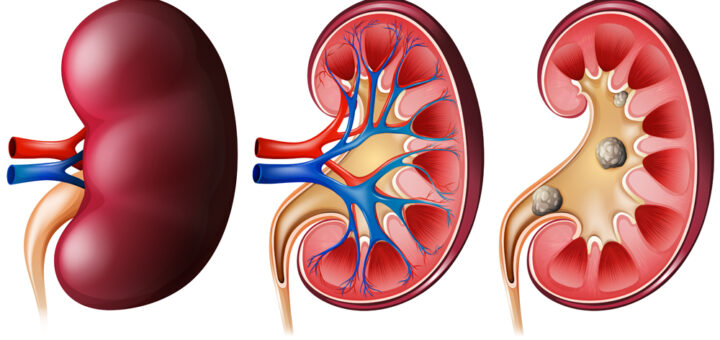Kidney outcomes and All Cause Mortality in people with T2DM exhibiting non-albuminuric Kidney Insufficiency

A decreased glomerular filtration rate (GFR) without significant albuminuria is known as non-albuminuric kidney disease. This phenomenon has given rise to much researches, recently. Still, people at higher risk of kidney function in diabetes is unclear in between people with non-albuminuric kidney insufficiency and those exhibiting preserved kidney function without albuminuria. Yui Yamamoto and colleagues conducted a study under the title “Kidney outcomes and all-cause mortality in people with type 2 diabetes exhibiting non-albuminuric kidney insufficiency” published in Diabetologia journal. The summary of this study is given below:
Objective:
To illustrate the risk of kidney outcomes and all-cause mortality in people with diabetes manifesting non-albuminuric kidney insufficiency.
Method:
It is a retrospective cohort study conducted with 8320 Japanese adults with type 2 diabetes. These subjects were classified into 4 groups by assessing the presence of albuminuria and kidney insufficiency at baseline.
The primary composite kidney endpoint was a 50% deterioration in eGFR from baseline or the commencement of kidney replacement therapy. The percentage change in eGFR slope on an annual basis and progression of albuminuria category were investigated as the secondary and tertiary kidney endpoints, respectively. All-cause death was also set as an important endpoint.
Findings:
Investigations reveal that people with non-albuminuric kidney insufficiency have poorer kidney outcomes and life prognosis as compared to those without CKD. The study directs the attention to the occasional assessment of kidney function unaccompanied by albuminuria in people with this unique phenotype of kidney disease.
Future studies with multicentre prospective cohorts and larger sample sizes should be conducted to confirm these findings.
Image Credit :Infographic vector created by brgfx – www.freepik.com






